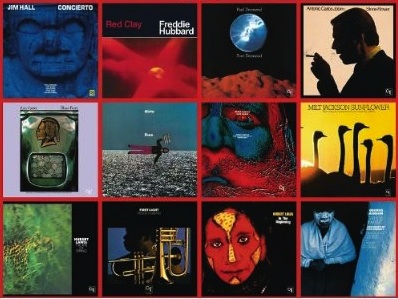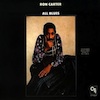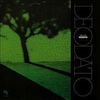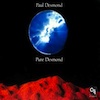
Celebrating CTI Records’ 40th Anniversary – Part 2
Contributed by guest blogger Doug Payne (Sound Insights)
Sony’s Masterworks Jazz imprint continues its 40th anniversary celebration of the legendary CTI Records legacy with an additional six titles, issued this week: Deodato’s Prelude, George Benson’s White Rabbit, Milt Jackson’s Sunflower, Jim Hall’s Concierto, Paul Desmond’s Pure Desmond and Ron Carter’s All Blues. Two of the discs are among CTI’s most historic and essential releases (Prelude, Concierto), two are among the label’s most pleasurable listens (White Rabbit, Sunflower) and one (All Blues) has never been issued on CD outside of Japan.
Each of the discs, supervised by producer Richard Seidel and beautifully mastered by Mark Wilder and Maria Triana, is packaged to look like the original LP, even getting the gatefold treatment the original LPs were given – and, in most cases, maintaining the original logo and catalog number placement of the original LP for the CD cover (the liner original notes for Pure Desmond and Concierto are even surprisingly reproduced as inserts to those particular CDs).
 White Rabbit – George Benson: Guitarist George Benson had already recorded one album for CTI (Beyond the Blue Horizon) plus three notable albums for Creed Taylor’s CTI production house at A&M (an additional album recorded during this time was issued years later) when he waxed White Rabbit in November 1971.
White Rabbit – George Benson: Guitarist George Benson had already recorded one album for CTI (Beyond the Blue Horizon) plus three notable albums for Creed Taylor’s CTI production house at A&M (an additional album recorded during this time was issued years later) when he waxed White Rabbit in November 1971.
White Rabbit ranks among the strongest and most consistently satisfying and artistic of all of George Benson’s jazz albums, even though each and every one of his CTI albums contains something of significant worth. Recorded under the auspices of arranger Don Sebesky, who had arranged Benson’s earlier Shape of Things to Come (1969) and The Other Side of Abbey Road (1970), White Rabbit is probably now best known as one of the earliest recordings of Detroit-based guitarist Earl Klugh, who was 17 at the time of this recording (on Benson’s excellent “El Mar” only – yes, he solos briefly too…Klugh joined Benson’s band in 1973). Elsewhere, guitarist Jay Berliner nicely counters Benson’s guitar and is most notable on the album’s track.
White Rabbit overflows with exceptionally strong performances by both Benson and Sebesky, most notably on two hippie-era rock odes, The Mamas & the Papas’ “California Dreaming” and Jefferson Airplane’s title track. Both pieces were no doubt brought to the session by arranger Don Sebesky, a specialist then of transforming such rock staples into dynamic jazz performances. It’s no stretch to imagine that Creed Taylor was on board for these covers, imaginatively reconsidered by Sebesky (who uses an effectively minimal deployment of brass and winds throughout) and brought to life by Benson’s warm and reassuring guitarisms. The excellent and artistically and commercially satisfying White Rabbit was nominated for a 1972 Grammy Award for Best Jazz Performance – Group (in competition with another CTI performance by Joe Farrell for “Outback”) but lost to yet another CTI performance of “First Light” – also arranged by Don Sebesky – by Freddie Hubbard.
 All Blues – Ron Carter: Bassist Ron Carter had long been Creed Taylor’s first-choice bassist on record dates stretching as far back to the classic Gil Evans recording Out of the Cool in 1960. Carter was the first bass choice for many Creed Taylor productions throughout the 1960s for the Impulse, Verve, MGM and A&M/CTI labels, even while the bassist was recording and touring as part of the Miles Davis Quintet. And it was Ron Carter’s dulcet tones and swinging accompaniment on the double bass that drove nearly every CTI album since 1970 into the overdrive that its soloists are often given sole credit for.
All Blues – Ron Carter: Bassist Ron Carter had long been Creed Taylor’s first-choice bassist on record dates stretching as far back to the classic Gil Evans recording Out of the Cool in 1960. Carter was the first bass choice for many Creed Taylor productions throughout the 1960s for the Impulse, Verve, MGM and A&M/CTI labels, even while the bassist was recording and touring as part of the Miles Davis Quintet. And it was Ron Carter’s dulcet tones and swinging accompaniment on the double bass that drove nearly every CTI album since 1970 into the overdrive that its soloists are often given sole credit for.
Surprisingly, though, Ron Carter’s second CTI recording, All Blues, fell well below the radar. It was hardly noticed when it was first issued in early 1974 (his 1973 CTI debut, Blues Farm, which was hardly a hit, still remains better known). And despite four previous CD releases in Japan, All Blues has never had a domestic release on CD, making it one of the least known of all the bassist’s solo albums. Interestingly, it’s probably among the best of the albums the bassist waxed for the CTI label between 1973 and 1976. This is due in no small measure to the commanding presence of tenor saxophonist Joe Henderson on “A Feeling,” “117 Special,” “Rufus” and “All Blues.” Carter here also solidifies a simpatico musical kinship with pianist Roland Hanna, who he’d first played with on a European tour in 1969. Hanna is especially featured on the florid trio feature, “Light Blue” (not the Monk piece), as well as Carter’s bop-y “Rufus” (not the Archie Shepp piece). Not surprisingly, Ron Carter dominates the proceedings, with his especially distinctive bass helming any number of attractive solo features (not to mention the overdubbed bass “solo” of “Will You Be Mine”).
 Prelude – Deodato: Since relocating to the United States in 1967, Brazilian pianist and composer Eumir Deodato had arranged many recordings, including several soundtracks and a historic meeting between Antonio Carlos Jobim and Frank Sinatra. Deodato also arranged recordings for such CTI artists as Wes Montgomery, Walter Wanderley, Milton Nascimento, Antonio Carlos Jobim, Astrud Gilberto and Stanley Turrentine by the time producer and CTI boss Creed Taylor offered the pianist and composer his own CTI date in 1972.
Prelude – Deodato: Since relocating to the United States in 1967, Brazilian pianist and composer Eumir Deodato had arranged many recordings, including several soundtracks and a historic meeting between Antonio Carlos Jobim and Frank Sinatra. Deodato also arranged recordings for such CTI artists as Wes Montgomery, Walter Wanderley, Milton Nascimento, Antonio Carlos Jobim, Astrud Gilberto and Stanley Turrentine by the time producer and CTI boss Creed Taylor offered the pianist and composer his own CTI date in 1972.
Deodato had recorded nine albums under his own name or as part of the band Os Catedráticos in his native Brazil. But Prelude was the first album Deodato released – under his surname only – in America. And what a remarkable debut it was. Featured on the album was Deodato’s magically captivating performance of “Also Sprach Zarathustra (2001),” a jazz-rock take on a classic piece whose then-recent popularity originated with its striking feature in Stanley Kubrick’s epic 1968 film 2001. But what Deodato accomplishes here is utterly unique. This version of the theme has been much copied, but never equaled. “Also Sprach Zarathustra (2001)” rose to number 2 on the U.S. pop charts, making it the biggest hit in CTI’s entire history and its best-ever selling song. The song went on to win a Grammy Award for Best Pop Instrumental Performance and is almost as recognizable in this version as many of the most popular film and TV themes of the 20th century. Like it or hate it, “Also Sprach Zarathustra” also remains one of CTI’s best and most memorable performances: a pinnacle of funky rock and electric jazz, the definition of all the things the label did well. Boasting terrific solos from Deodato on electric piano, Ron Carter on acoustic bass and John Tropea on electric guitar, “Also Sprach Zarathustra” is probably not as representative of the rest of Prelude, nor indeed the remainder or Deodato’s American recording career, as its strength may indicate.
The rest of Prelude, with one exception, is delightful but not nearly as definitive as its signature tune. Deodato covers another classic by Debussy, which gives the album its title, a standard (“Baubles, Bangles and Beads”) and two fairly interesting easy-listening originals, “Sprit of Summer” and “Carly & Carole” (names for two pop divas Deodato worked with, a song the composer had earlier recorded for his Os Catedráticos 73 – aka Skyscrapers – and a song which also featured in the 1973 film The Exorcist). The exception here is the driving funk tune “September 13,” credited to both Deodato and the date’s drummer, Billy Cobham, and named for the date the song was waxed. It is one of those tunes that was obviously crafted to fill the remainder of an otherwise planned album that came up short on playing time. “September 13” is one of the funkiest pieces CTI ever captured, a soundtrack in search of a film and one of the great pieces of funky jazz surviving outside of a Blaxploitation soundtrack (it too was heard in The Exorcist). Prelude for all its strengths and weaknesses is unequivocally essential CTI.
 Pure Desmond -Paul Desmond: Iconic alto saxophonist Paul Desmond (1924-77) was best known as the harbinger of the Dave Brubeck Quartet (1951-67) and composer of the group’s most famous tune, “Take Five.” Throughout the 1960s Desmond also recorded as part of a group he co-led with guitarist Jim Hall. The alto saxophonist’s CTI debut was the remarkable Skylark (CTI, 1974 – featuring guitarist Gabor Szabo and keyboardist Bob James).
Pure Desmond -Paul Desmond: Iconic alto saxophonist Paul Desmond (1924-77) was best known as the harbinger of the Dave Brubeck Quartet (1951-67) and composer of the group’s most famous tune, “Take Five.” Throughout the 1960s Desmond also recorded as part of a group he co-led with guitarist Jim Hall. The alto saxophonist’s CTI debut was the remarkable Skylark (CTI, 1974 – featuring guitarist Gabor Szabo and keyboardist Bob James).
Pure Desmond, recorded in September 1974 and issued in early 1975, comes closest of all of Desmond’s CTI recordings to representing the leader in his own climate and most personal space. Fronting a swinging quartet – with no audible overdubs – Desmond is heard here with his own guitarist, Canadian Ed Bickert, super bassist Ron Carter and MJQ drummer Connie Kay (1927-94). Pure Desmond is remarkably unremarkable but satisfyingly passionate none the less. It feels like four guys just getting together and playing some favored tunes in a quiet, swinging way. While there is no grand concept or any great idea steering the program, there is some lovely playing by some exceptionally talented players here.
The program is mostly comprised of jazz standards, including Ellington (“Just Squeeze Me,” “Warm Valley”), Cole Porter (“Why Shouldn’t I,” “Everything I Love”), Jerome Kern (“I’m Old Fashioned,” “Till the Clouds Roll By”), Django Reinhardt’s “Nuages” and “Mean to Me.” It’s refreshingly musical that Pure Desmond is jazzy enough to capture Paul Desmond doing his thing without encumbered arrangements. But as pretty as it is, it’s just not that substantial a CTI album or really much of a worthwhile Paul Desmond album. This CD contains the alternate takes of “Nuages,” “Just Squeeze Me” and “Till the Clouds Roll By,” first included on the 2003 CD release of Pure Desmond as well as the two bonus tracks from the session, the excellent “Wave” and “Song from M.A.S.H.,” included on the 2003 CD reissue and the first domestic CD release of this album in 1987.
 Concierto – Jim Hall: By 1975, the guitarist was attempting to make more of a name for himself, having waxed several solo albums for the MPS and Milestone labels, including a live duo with CTI’s house bassist, Ron Carter. The monumental Concierto, the first of several of the guitarist’s appearances on the CTI, was not only one of the guitarist’s best recordings up until that time but one of the greats of Jim Hall’s entire recording career.
Concierto – Jim Hall: By 1975, the guitarist was attempting to make more of a name for himself, having waxed several solo albums for the MPS and Milestone labels, including a live duo with CTI’s house bassist, Ron Carter. The monumental Concierto, the first of several of the guitarist’s appearances on the CTI, was not only one of the guitarist’s best recordings up until that time but one of the greats of Jim Hall’s entire recording career.
Centered around a magically magnificent performance of Joaquin Rodrigo’s “Concierto de Aranjuez,” Concierto is also probably one of CTI’s greatest single artistic triumphs. Gorgeously arranged in a remarkably minimalist fashion (no strings or horns were overdubbed in the making of this classic) by Don Sebesky, “Concierto de Aranjuez” features a stunning performance by not only the guitarist, but provides notable solos from trumpeter Chet Baker and alto saxist Paul Desmond, all of whom combine to give a magisterial presentation. The rhythm section here and throughout the remainder of the album is terrifically populated by the purposeful Roland Hanna on piano, Ron Carter on bass and Steve Gadd on drums. Like the 1960 presentation of the tune by Miles Davis and Gil Evans, Hall and Sebesky also provide a variation on only the second of the 1939 composition’s three movements. But what they convey here is truly outstanding and worth savoring each and every second of its nearly 20-minute playing time.
The remainder of Concierto’s program has never felt quite as substantial or sufficient as the magnificent title piece. But it all swings with a passion, fire and grace that such impeccably perfect practitioners, led by the nearly ethereal playing of the leader, are apt to suggest. Included on the program are Cole Porter’s “You’d Be So Nice To Come Home To” (also with Desmond and Baker), Hall’s “Two’s Blues” (with Baker, no Hanna), wife Jane’s “The Answer is Yes” (with Baker) and Duke Ellington’s “Rock Skippin’” – here given its original title, “Rock Skippin’ at the Blue Note,” for the first time on this release of the disc. Also included here are “bonus tracks” which appeared on previous CD issues of Concierto including the lovely Desmond/Hall/Carter trio piece “Unfinished Business,” a title the sleeve credits to Hall and Carter, but which is actually a cover of a Mexican folk tune called “La Paloma Azul,” as well as alternate takes of “You’d Be So Nice To Come Home To,” “The Answer Is Yes” and “Rock Skippin’ at the Blue Note.” Concierto was nominated for a Grammy Award for Best Jazz Performance – Soloist in 1975, losing out to an Oscar Peterson / Dizzy Gillespie album.
 Sunflower – Milt Jackson: Many jazz fans were probably surprised to see Milt Jackson appear on CTI Records, first on Stanley Turrentine’s Cherry, issued in August 1972, then on the great vibraphonist’s own CTI album Sunflower, issued several months later. At this point, Jackson, one of the founding members of the Modern Jazz Quartet, had tired of touring with the MJQ, never attaining the audience, celebrity and financial rewards rock stars half his age with half his talent doing half the work were experiencing at the time.
Sunflower – Milt Jackson: Many jazz fans were probably surprised to see Milt Jackson appear on CTI Records, first on Stanley Turrentine’s Cherry, issued in August 1972, then on the great vibraphonist’s own CTI album Sunflower, issued several months later. At this point, Jackson, one of the founding members of the Modern Jazz Quartet, had tired of touring with the MJQ, never attaining the audience, celebrity and financial rewards rock stars half his age with half his talent doing half the work were experiencing at the time.
After a long career of solo albums on the Blue Note, Atlantic, Riverside, Impulse, Limelight and Verve labels stretching back some two decades that were blues-ier and far more swinging than anything the MJQ waxed, Jackson finally wanted his own piece of the pie. Milt Jackson recorded three albums for CTI in the space of about a year, the first of which, Sunflower, is surely the best. Jackson, who had worked on surprisingly few previous Creed Taylor productions was up for making an album that would reach the younger ears CTI was reaching with popular records by Freddie Hubbard, Stanley Turrentine, George Benson, Grover Washington, Jr. and others. The result, Sunflower, was something of an instant classic. Gathering a top-shelf collective of young talent including CTI recording star Freddie Hubbard, pianist Herbie Hancock, bassist Ron Carter, guitarist Jay Berliner, drummer Billy Cobham, percussionist Ralph MacDonald and the arrangements of CTI’s house sound architect Don Sebesky, periodically alternating a sensibly sensitive commentary of horns and strings overdubs, Creed Taylor delivers what surely must be considered the vibist’s most distinctively wonderful record in an otherwise distinguished solo recording career.
The original program featured four long performances, kicked off by the lovely “For Someone I Love,” Jackson’s own composition. Initiated by Berliner’s guitar and coaxed by Hubbard’s colorful flugelhorn – not to mention Hancock’s especially exquisite piano solo – and Sebesky’s painterly strings, it is an especially terrific showcase for Jackson’s melodic mastery. Such a curious though perfectly exploratory opening leads ideally into Michel Legrand’s romantic idyll “What Are You Doing the Rest of Your Life” (from the 1969 film The Happy Ending), a song that many jazz players had discovered after Peggy Lee’s initial cover and pianist Bill Evans’ many performances of the sumptuously quixotic ode. Again, Jackson, Hubbard, Hancock and Sebesky excel – and one notices here Ron Carter’s especially sterling contributions to the program. The album’s (arguably) most memorable performance is the cover of The Stylistics’ 1972 hit “People Make the World Go Round.” The funky ballad, which had already attracted jazz attention on radio with Ramsey Lewis’ invigorating take of the tune, catches Herbie Hancock comping on Fender Rhodes, but soloing marvelously in a Gospel fashion on acoustic piano. Jackson, Hubbard and Carter are all in their element as well. The original album wraps up with the title track, “Sunflower,” which is a re-titled version of Freddie Hubbard’s tremendous “Little Sunflower,” first heard on the composer/trumpeter’s 1967 Atlantic album Backlash. It’s another glorious performance. “SKJ,” a bonus track that has featured on previous CD issues of Sunflower, was recorded during these sessions, but included not on the original Sunflower album, but rather on Jackson’s 1974 album Goodbye. Sunflower is one of the most enjoyable recordings in the entire CTI lexicon and remains a historically significant meeting of some of jazz’s best names. It also features one of photographer Pete Turner’s loveliest cover images, “Necking,” a photo taken in South Africa in 1970.
Links:
George Benson – White Rabbit
Ron Carter – All Blues
Deodato – Prelude
Paul Desmond – Pure Desmond
Jim Hall – Concierto
Milt Jackson – Sunflower